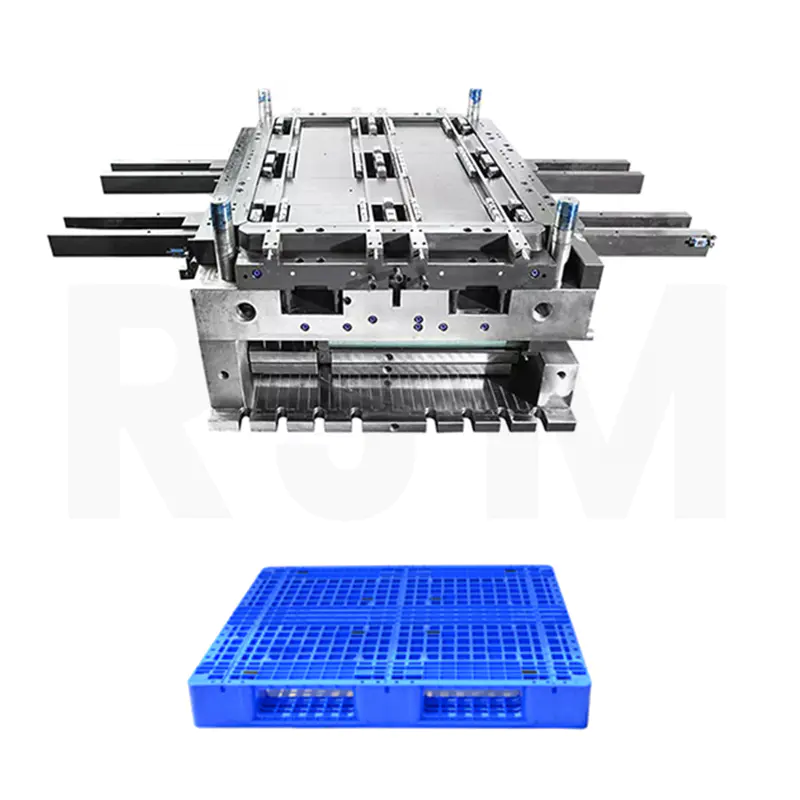Pallets are essential tools for the transportation and storage of goods in various industries. Behind the scenes, the manufacturing process involves a key component known as the pallet mould. This crucial tool is responsible for shaping the durable and functional structure of pallets, ensuring efficient material handling and storage solutions. In this article, we delve into the significance of pallet moulds and their impact on enhancing logistics and sustainability.
The pallet mould is engineered with precision to create consistent and reliable pallets. It is designed to meet specific industry standards and customer requirements, ensuring the structural integrity and load-bearing capacity of the pallets. The precise dimensions and shape of the mould enable the creation of pallets that can safely support heavy loads, ensuring the efficient movement and storage of goods in warehouses, distribution centers, and throughout the supply chain.
Pallet moulds offer customization options to meet diverse application needs. Manufacturers can tailor the mould design to accommodate different pallet sizes, styles, and material types. This flexibility allows for the production of pallets that are specifically tailored to meet the requirements of specific industries or logistical operations. Whether it's the size, shape, or reinforcement features, the adaptability of pallet moulds enables the creation of pallets that are optimized for their intended purpose.
Pallets are subjected to rigorous handling and transportation activities, requiring them to be sturdy and long-lasting. The moulding process ensures that the pallets are manufactured with materials that can withstand heavy loads, impacts, and exposure to various environments. By using high-quality pallet moulds, manufacturers can create durable and robust pallets that offer extended service life, reducing the need for frequent replacements and minimizing waste.
Pallet moulds contribute to sustainable material handling practices in several ways. Firstly, pallets themselves are often made from recycled materials, reducing the demand for virgin resources and minimizing environmental impact. The moulding process enables the production of pallets with optimal material utilization, minimizing waste and optimizing efficiency. Additionally, the durability of pallets created using high-quality moulds extends their lifespan, reducing the overall environmental footprint associated with pallet disposal.
Pallet moulds play a significant role in optimizing logistics and supply chain operations. The consistent and reliable production of pallets enables efficient material handling, storage, and transportation. Pallets facilitate the stacking, loading, and unloading of goods, streamlining warehouse operations and ensuring smooth supply chain flow. Furthermore, the uniformity in pallet dimensions and design allows for easy compatibility with various handling equipment, such as forklifts and pallet jacks, enhancing operational efficiency.
The pallet mould is a vital component in the production of reliable and efficient pallets. Its precision engineering, customization options, and focus on durability contribute to sustainable material handling practices, enhancing logistics and supply chain operations. By utilizing high-quality moulds, manufacturers can create durable pallets that offer extended service life and optimize the utilization of resources. The versatility and adaptability of pallet moulds enable the production of pallets tailored to specific industry requirements, further enhancing material handling efficiency. As the demand for efficient and sustainable logistics solutions continues to grow, the pallet mould plays a crucial role in shaping the future of material handling and storage practices.

